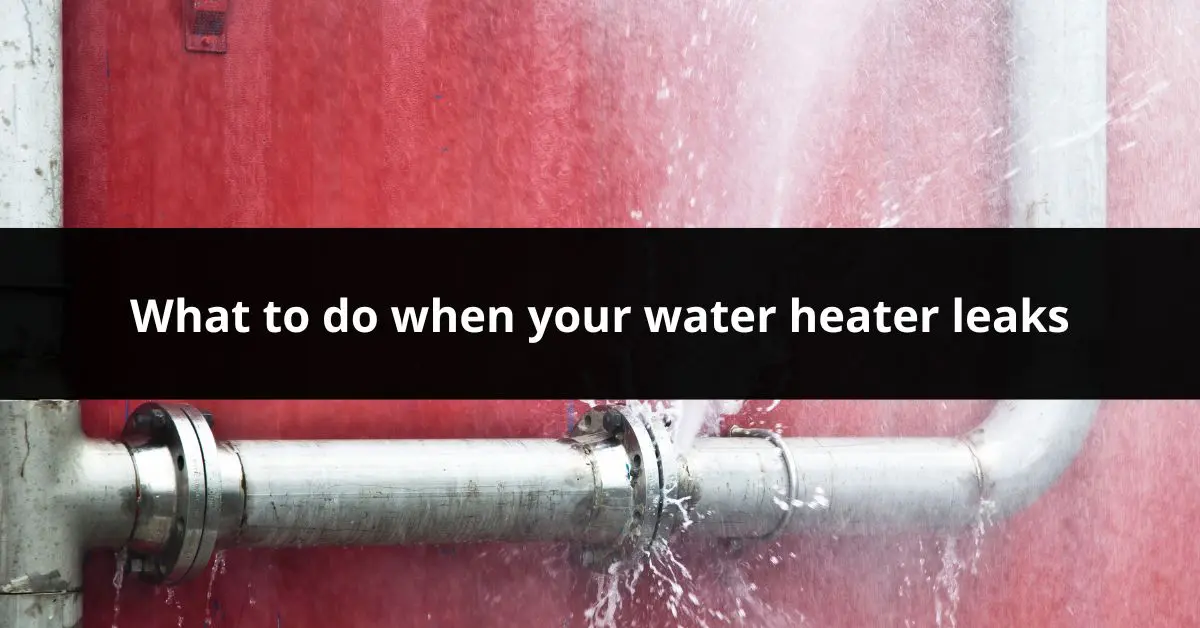Did you just find a puddle of water around your water heater? Don’t panic!
Water heaters leak and it does not always mean you have to replace it. Sometimes just tightening a loose pipe or changing the water temperature is all you’ll need to do. Other times a leaking water heater can lead to more problems, and those other problems can be more serious.
This guide to leaky water heaters will help you determine the cause of your leaky water heater, the next steps to take, and what can happen if you allow the leak to continue.
The first step is to determine what caused the leak.
The causes of water heater leaks include:
- Loose pipe connections
- A bad drain valve
- Faulty T&P valve
- Hard water
- High water pressure
- Cracks in the water heater
Once you’ve determined the cause of the water heater leak, you can asses and address the issue. And there are a few steps to take with this process.
What To Do If Your Water Heater Is Leaking
If you find your water heater is leaking, follow these 6 steps:
- Verify that it is your hot water heater leaking water.
- Is the water actually a water heater leak and not just condensation? Lay a piece of paper towel over the area you noticed the water and check on it hourly. If after 24 hours there are no signs of water, it was likely just condensation.
- Check the appliances surrounding your hot water heater to rule out your HVAC system or washing machine leaking water.
- Turn off the power.
- On a gas water heater, there should be a dedicated gas shutoff valve at the base of the tank.
- Shut off the cold water supply by turning the wheel clockwise as far as you can or if it’s a ball valve, turn the handle 180 degrees.
- Find the source of the leak.
- If your water heater is leaking from top, inspect the two pipes located on the top of your water heater to see if the fittings or connections are loose.
- If water is seeping down the side, the water heater pressure relief valve is leaking.
- If the water heater is leaking from the bottom, it usually is a crack in the hot water tank.
- If this is the case you will need a water heater replacement.
- Clean up the sitting water, since this can cause many water damage problems like warped structures, foundation cracks, insect infestations, and/or mold.
- Either buy a new water heater and install it, have a professional install a new water heater, or schedule a repair with a professional if you cannot fix the leak yourself.
Now that you know what to do if your hot water heater is leaking, it is time to take steps to prevent it from happening again.
Ways to Prevent a Water Heater Leak
Most hot water heater issues can be avoided by doing proper preventative maintenance. There are 7 things you can do, outside of hiring a plumber to check twice a year.
- Drain and flush the tank to remove sediment
- Replace the Anode rod as needed
- Check the Temperature & Pressure Relief Valve (T&P Valve)
- Examine the drain valve
- Adjust the temperature settings
- Check the water lines for damage or wear and tear
Bonus tip #1: Since you may not catch every leak quickly, you can proactively protect the floor underneath your water heater by using a water sealant or a drip bin.
Water heaters should last for at least ten years. After that first decade, your water heater may start to show you signs that it is going to fail. The most common signs of this include cloudy or foul-smelling water, temperature fluctuations, and insufficient hot water. If yours has these smells, it is likely time to buy a new one.
A leaking water heater doesn’t have to cause panic. They hold water and they sometimes leak. It’s part of what they do. Fixing water heaters is easy and very common.


